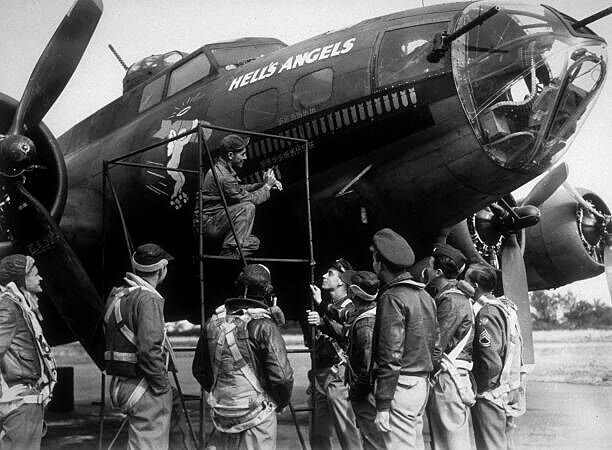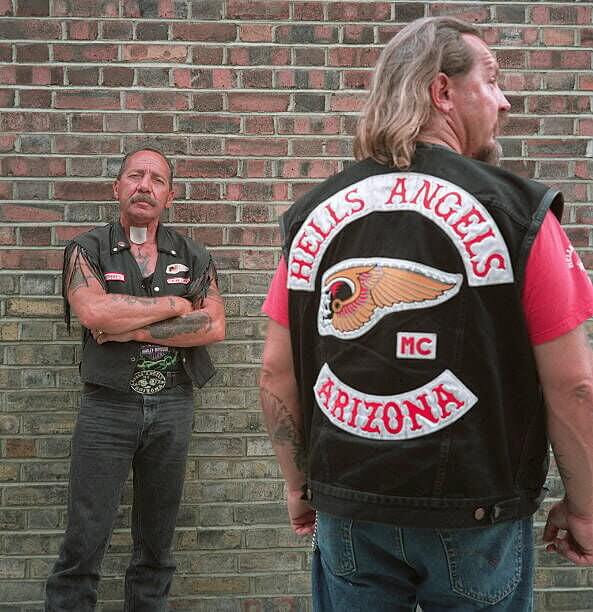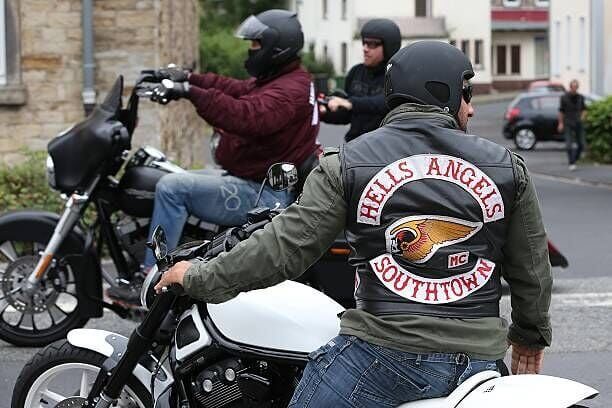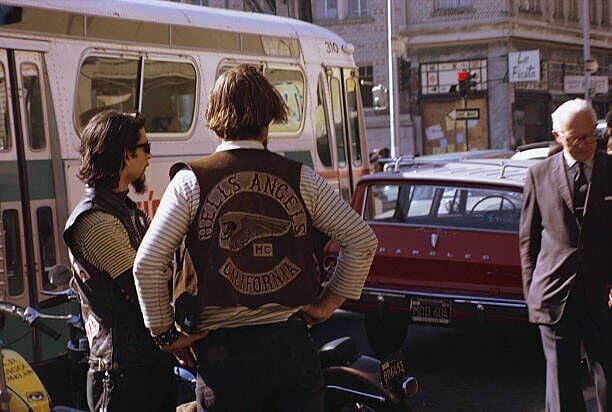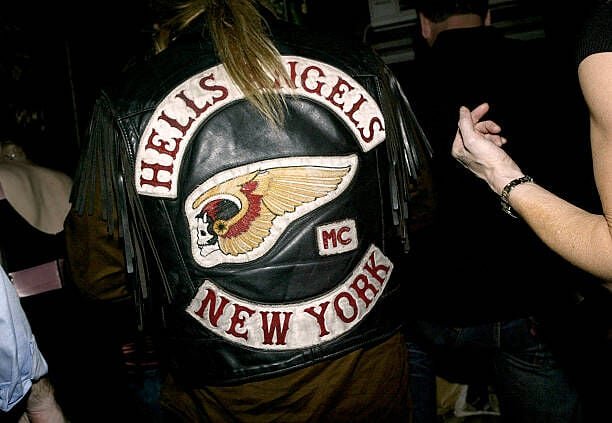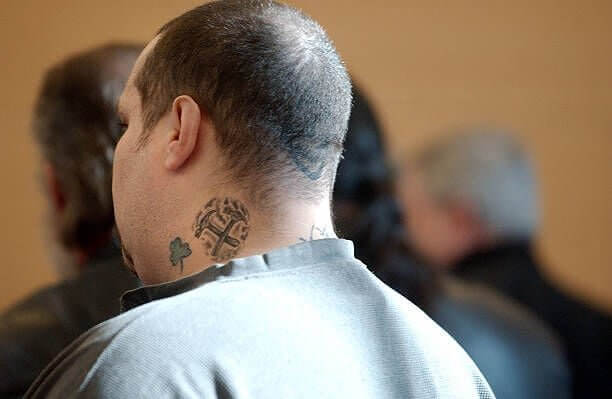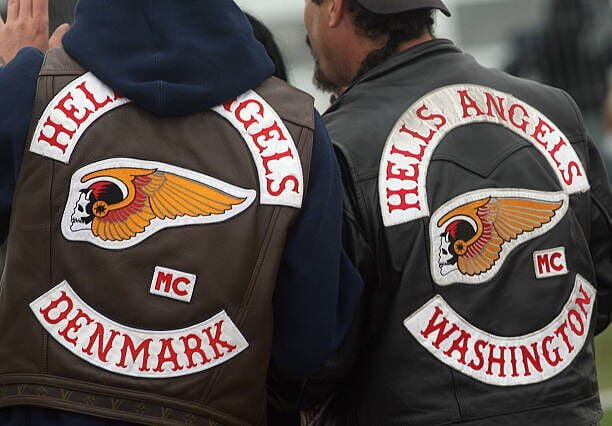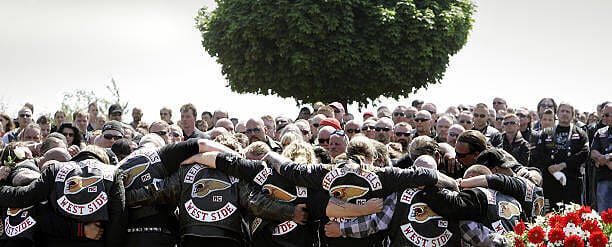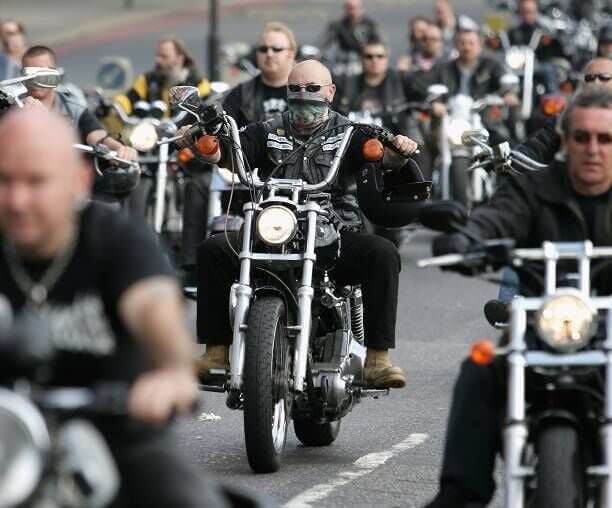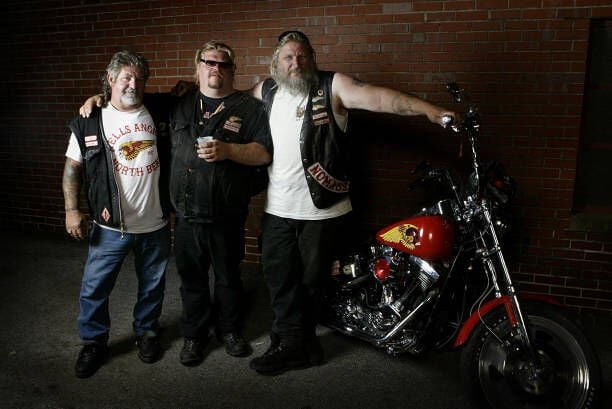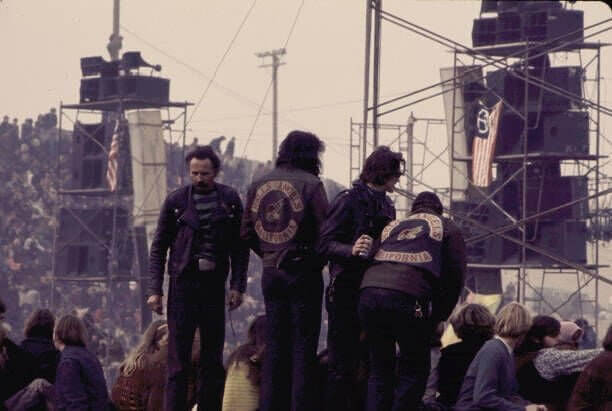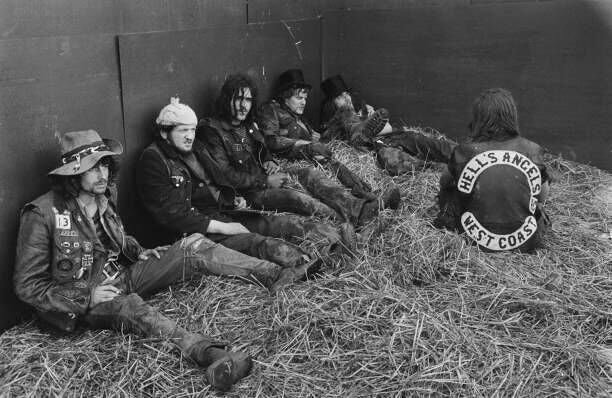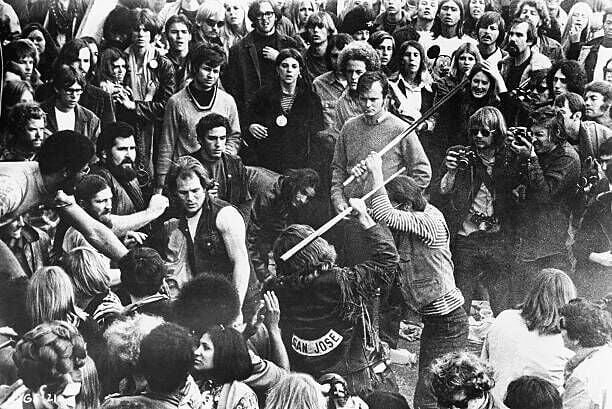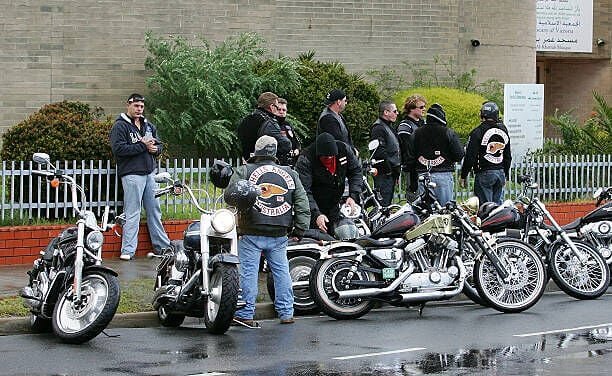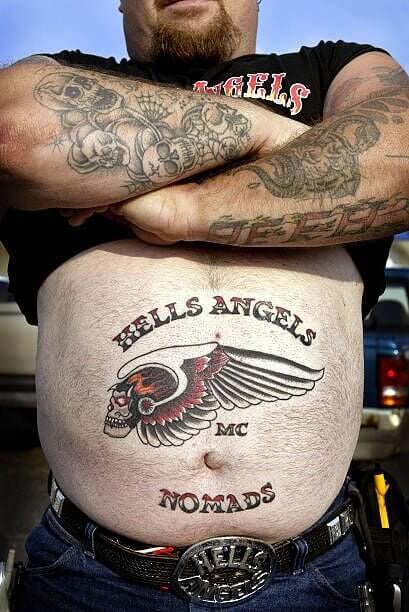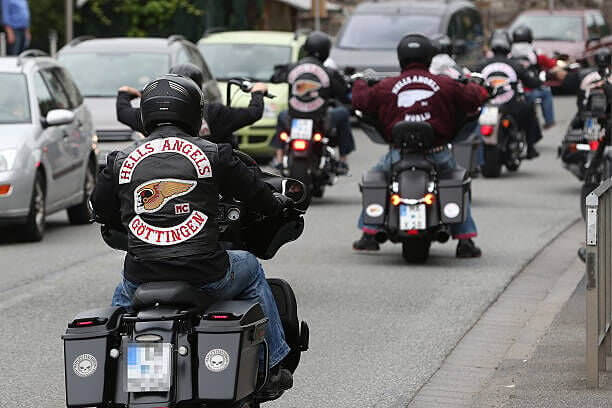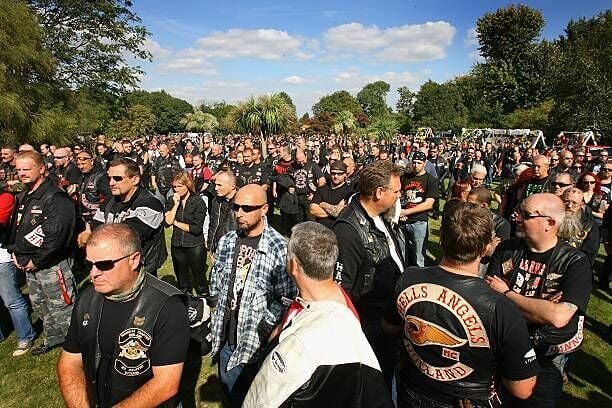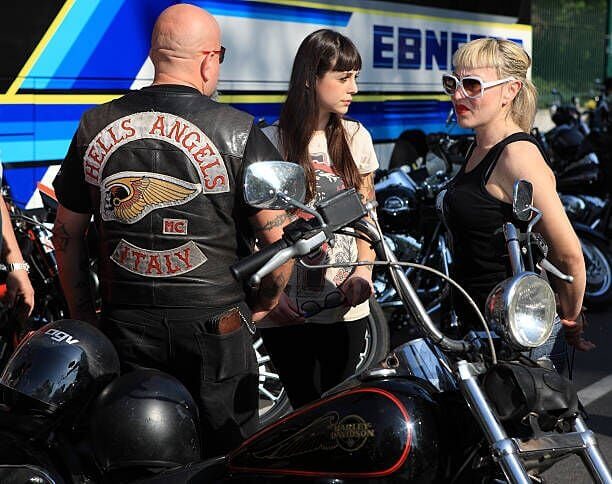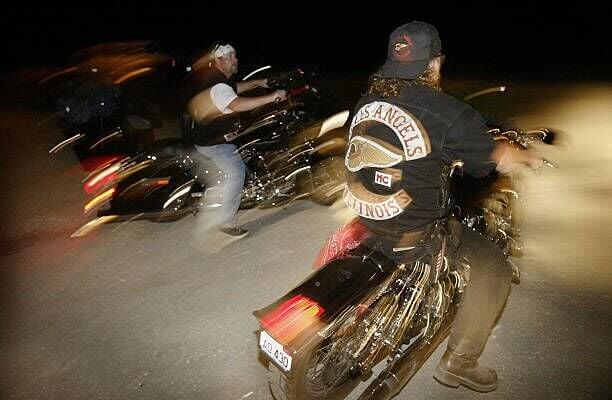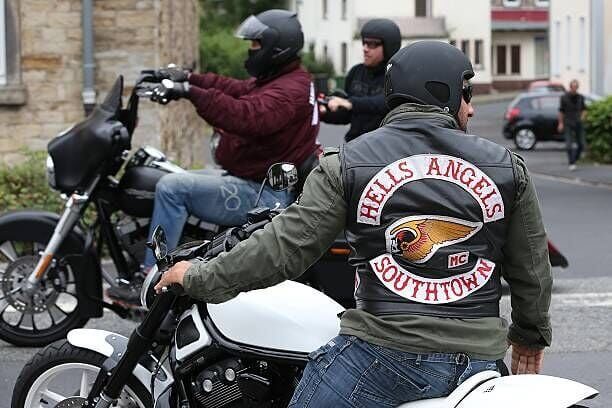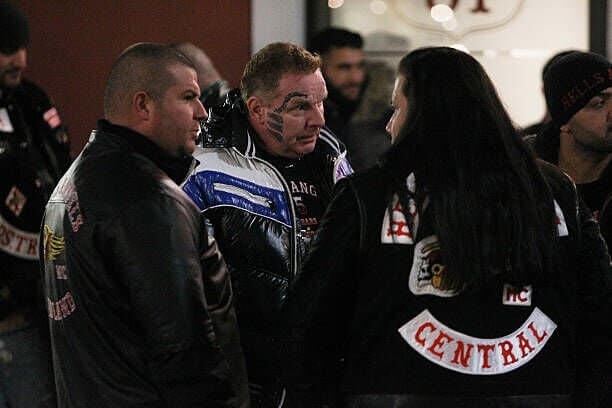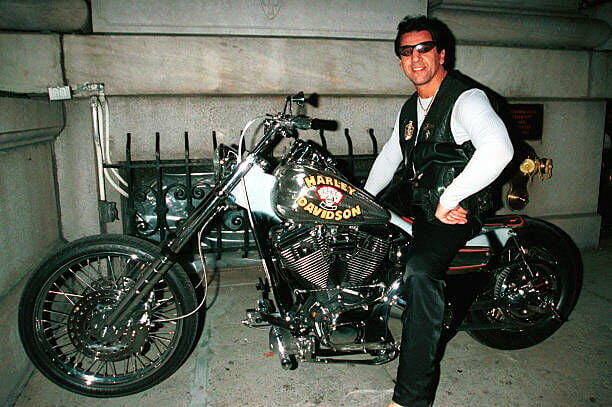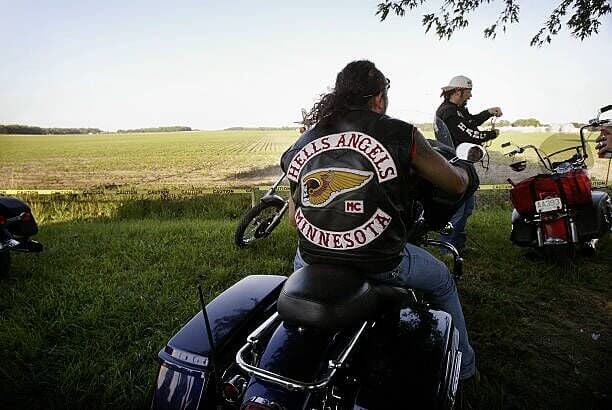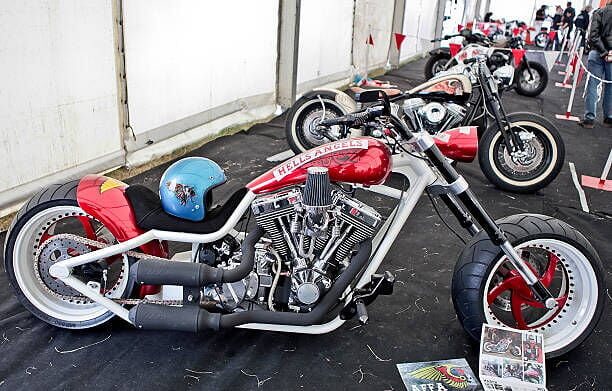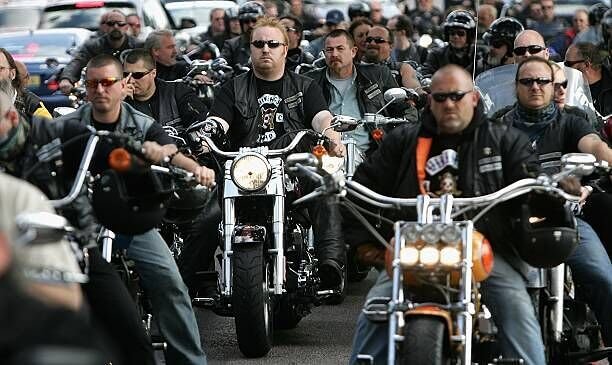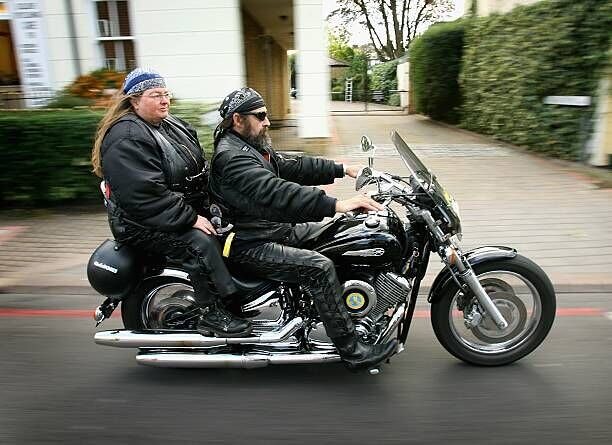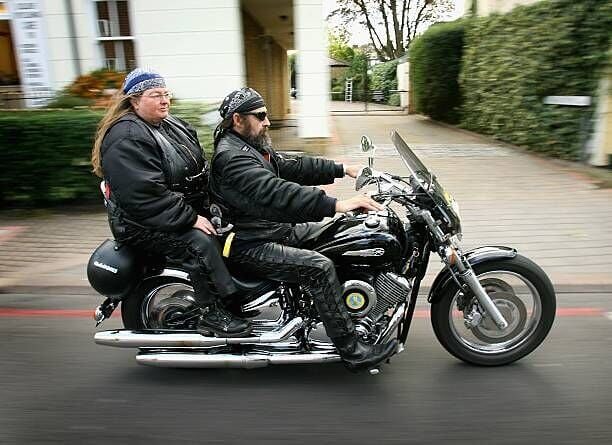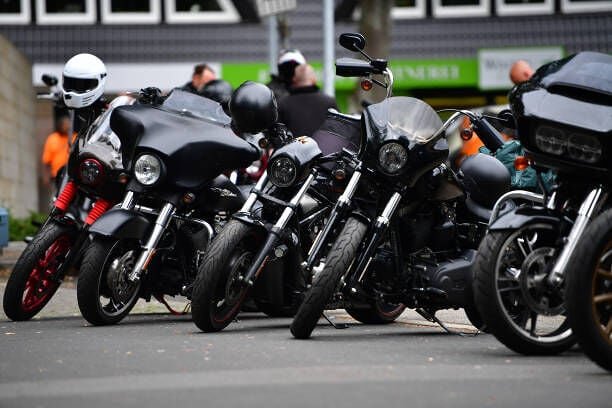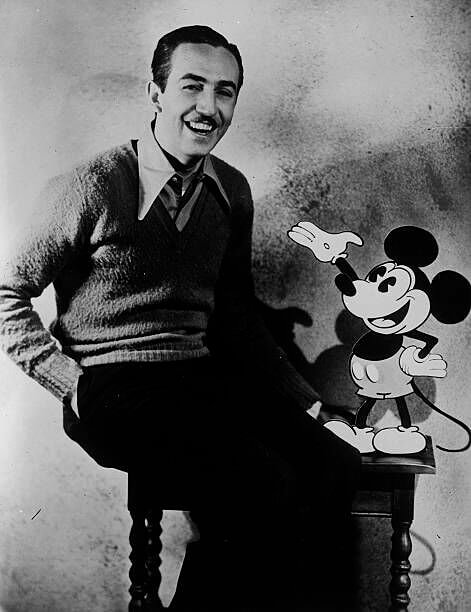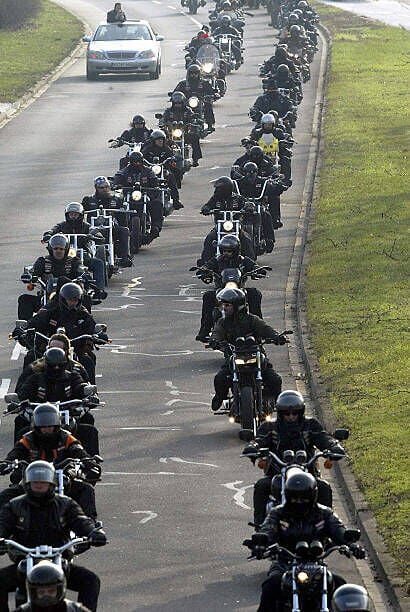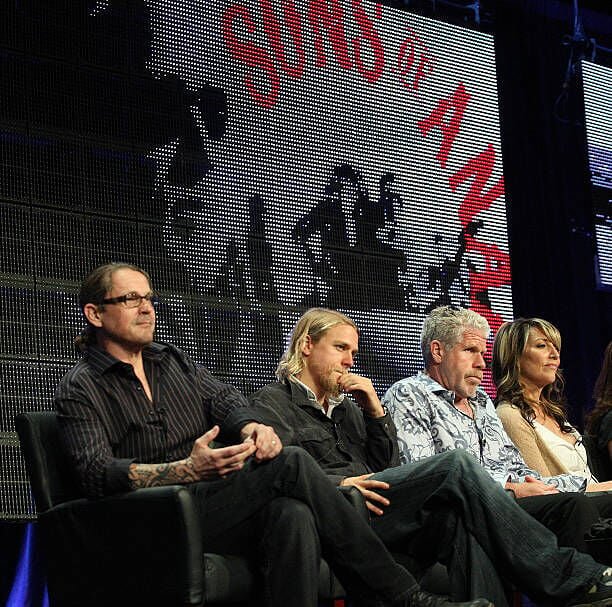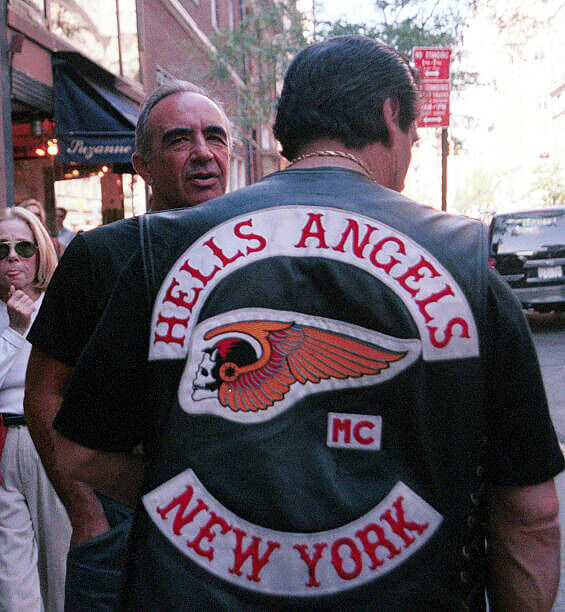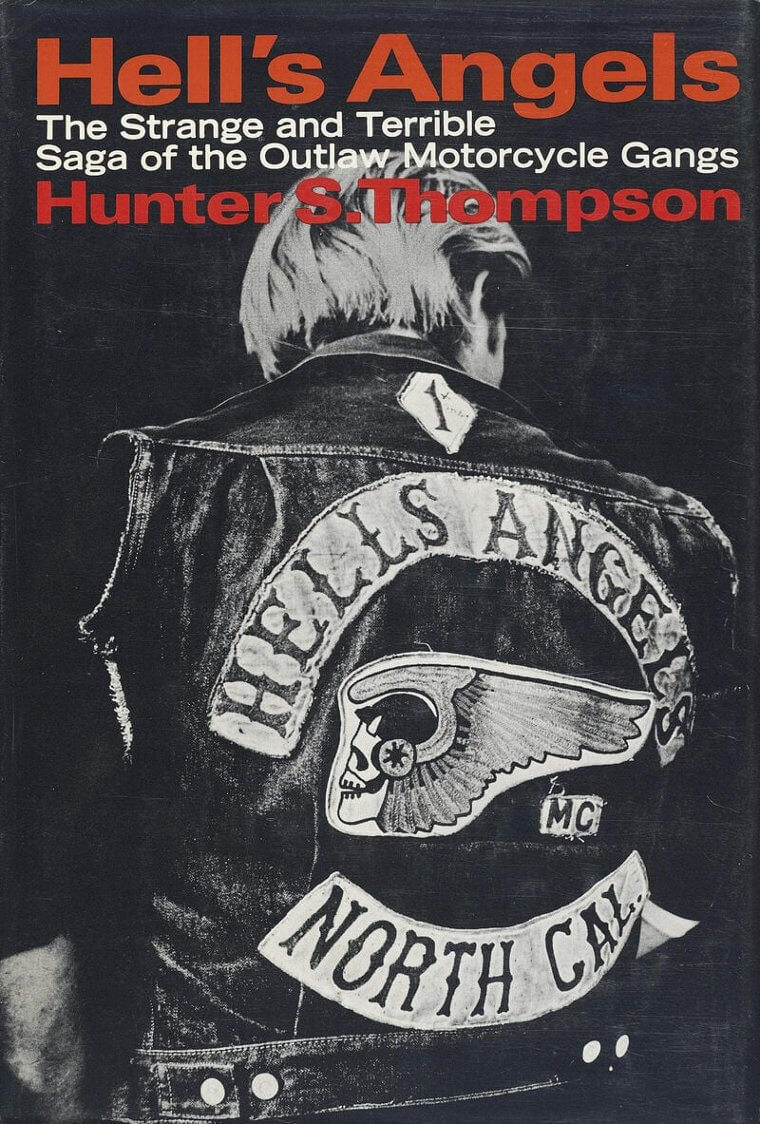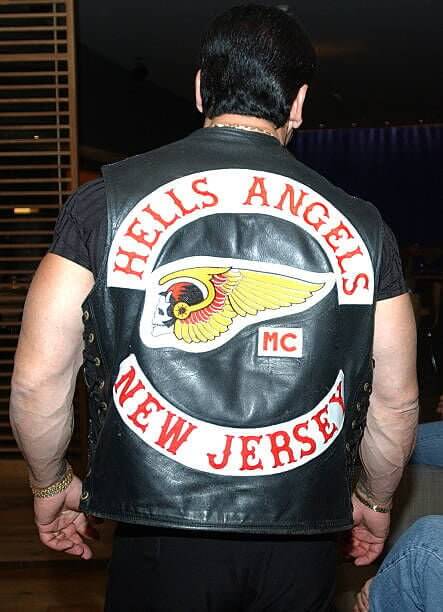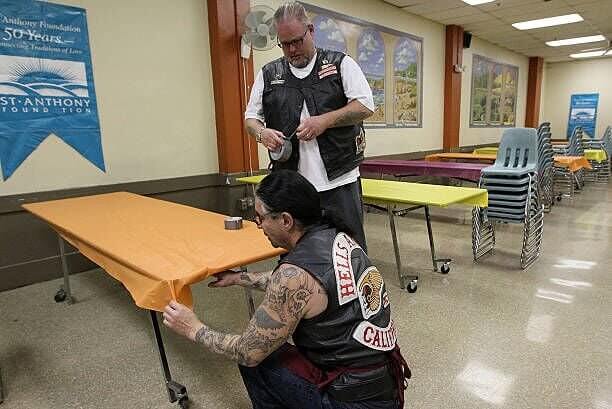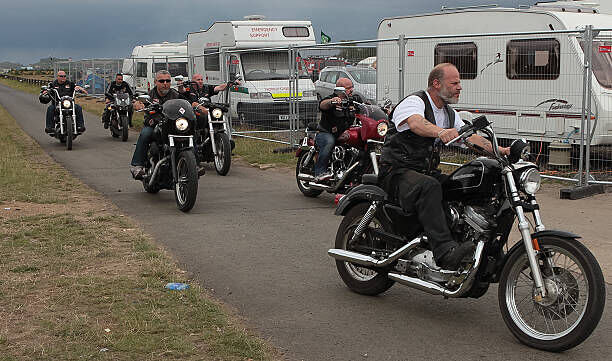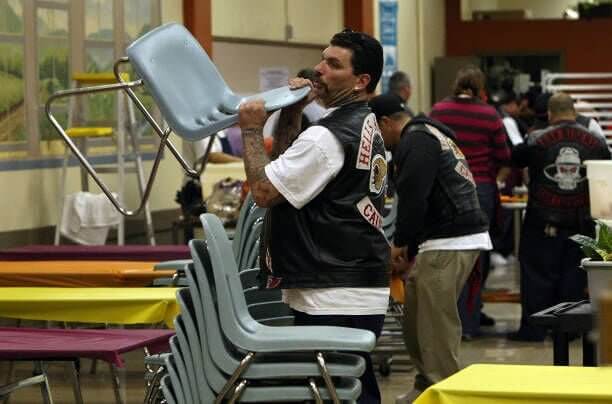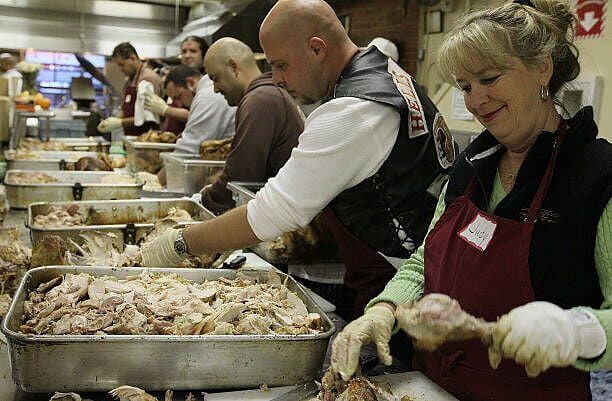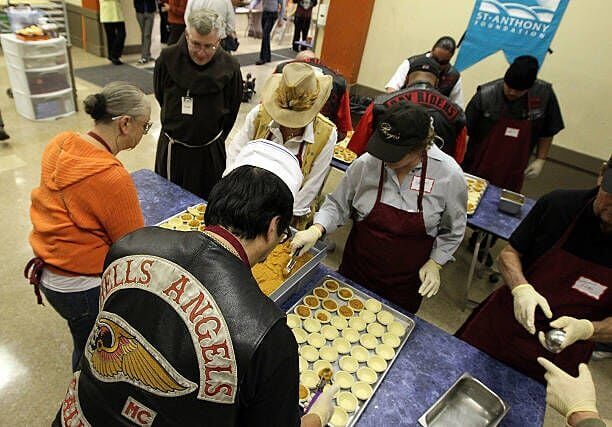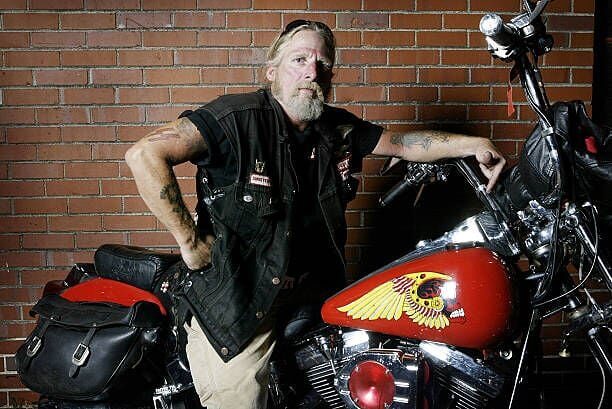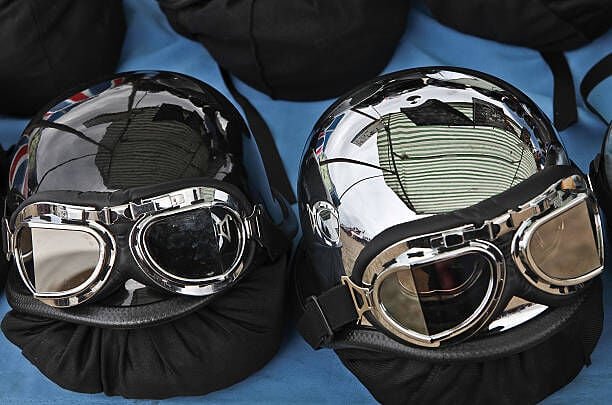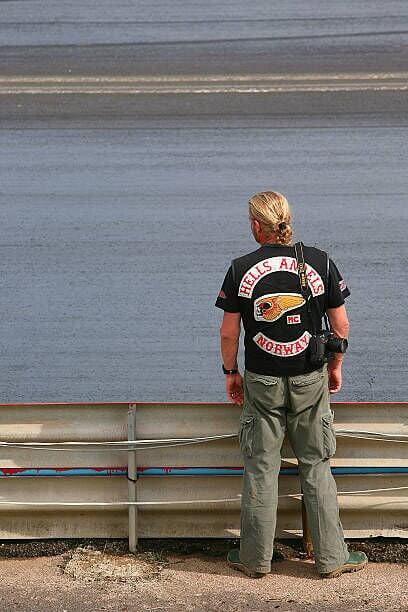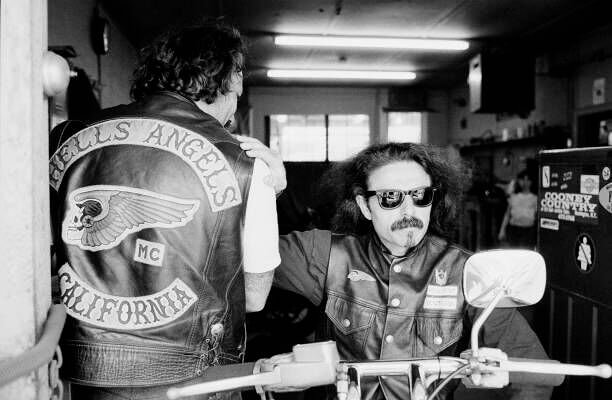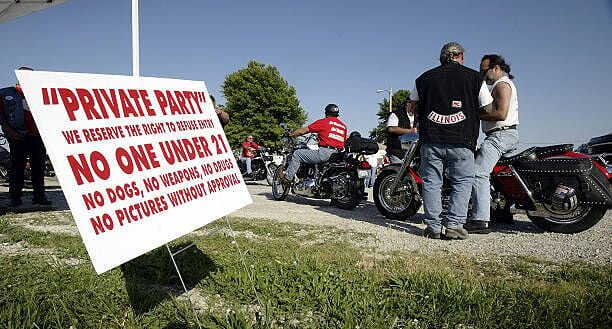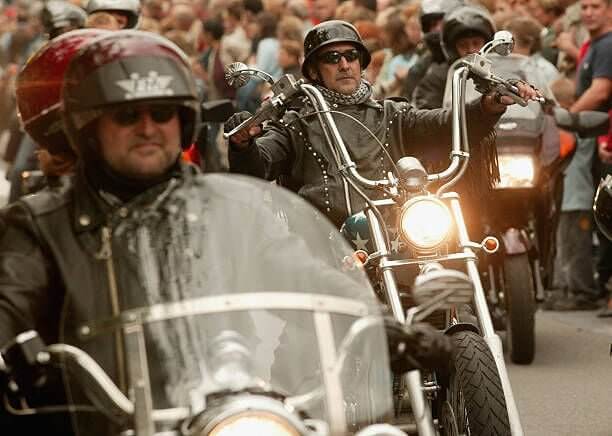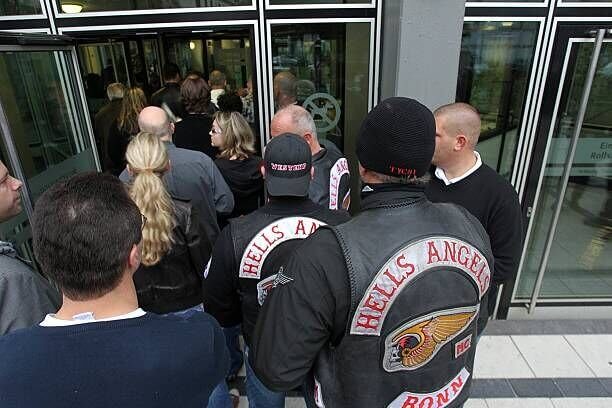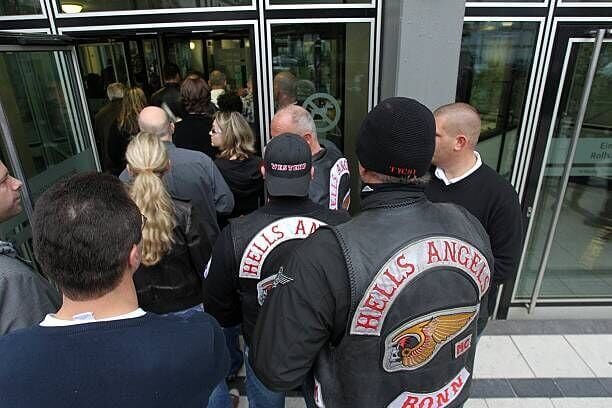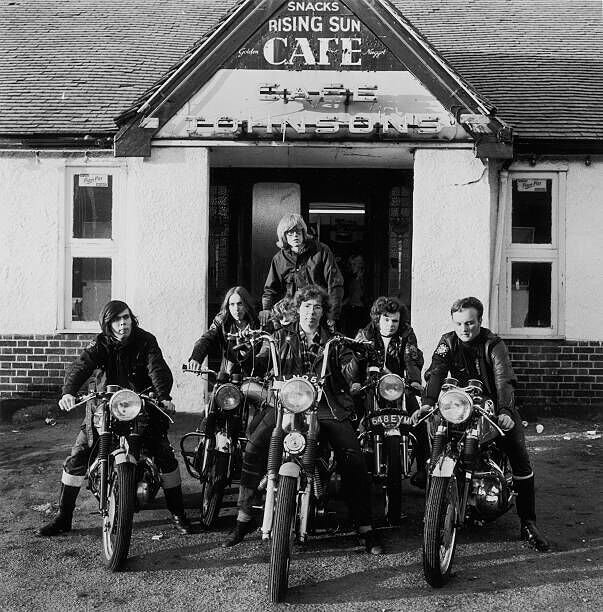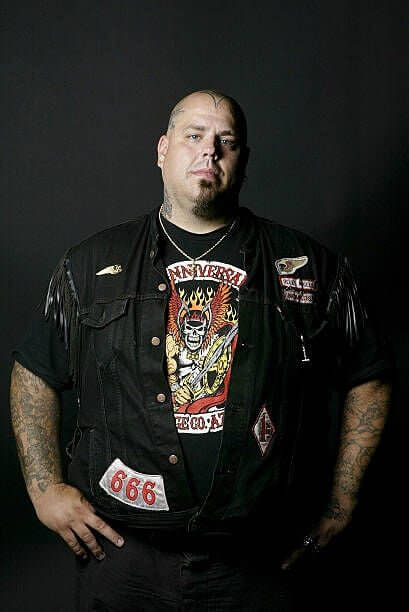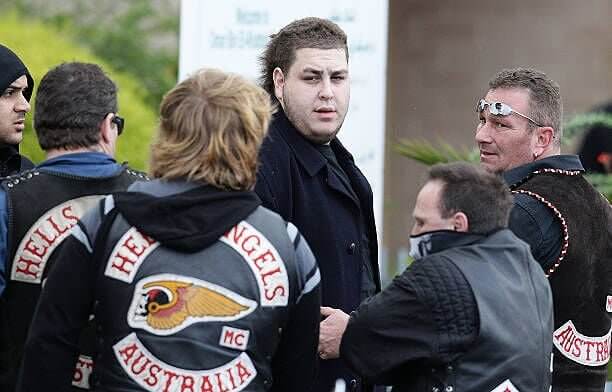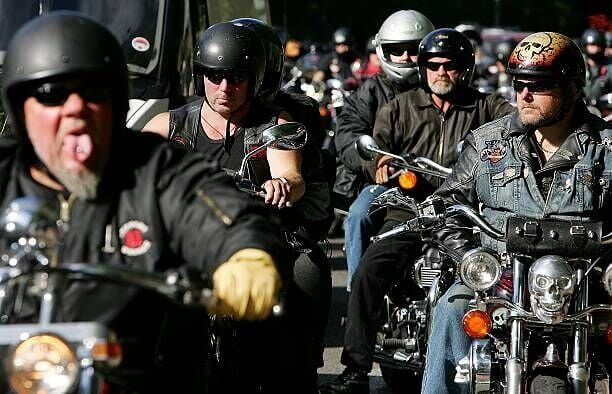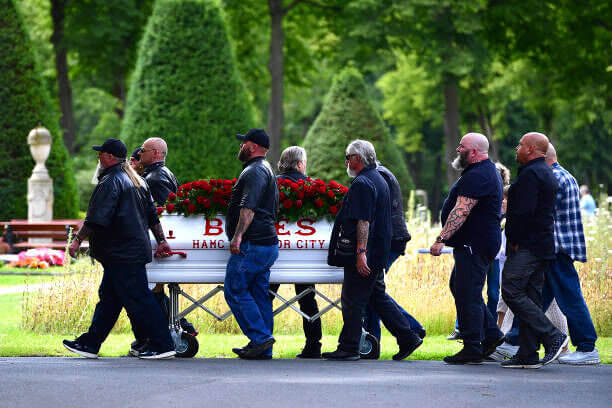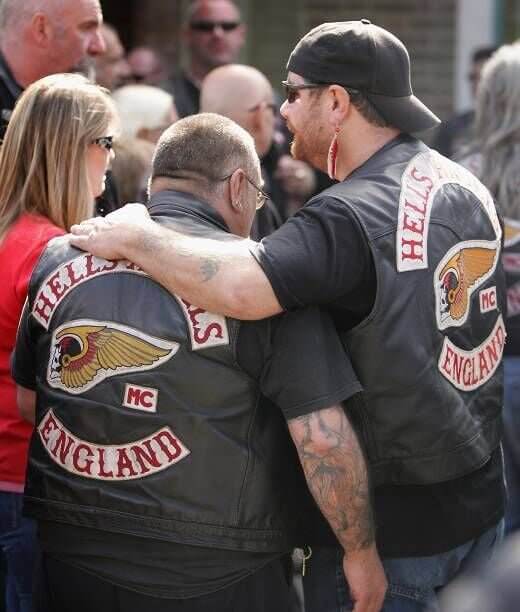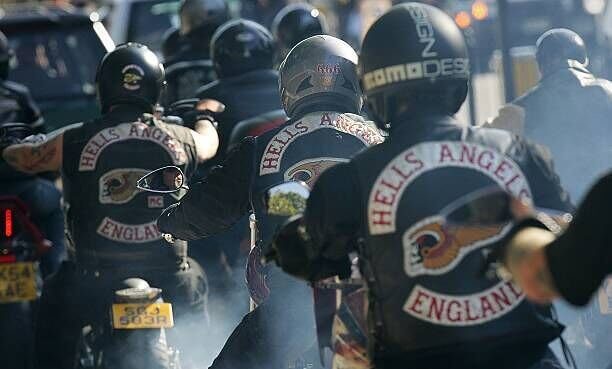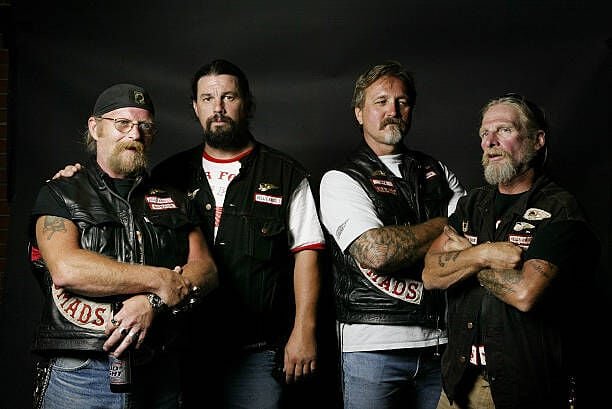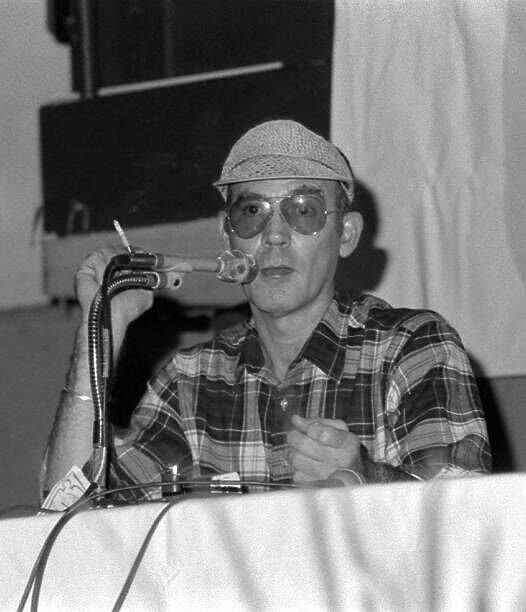Their name is legendary. There isn't a person in the Western World who hasn't at least heard of the Hells Angels. This infamous motorcycle gang started back in 1948, and they have gone on to make quite the name for themselves in the decades that followed as it spread worldwide. But not just anyone can join the club. They may occasionally break the law of the country that they ride in, but they never break the society's rules. Becoming a Hells Angel is a lifetime commitment, and the club becomes the first priority in your life. Over everything else. Read on to find out exactly how the brethren can become your life - and demise.
An Inside Look at the Life and Laws of the Hells Angels Motorcycle Club
The Hells Angels were officially formed on March 17, 1948. There are a few that will argue with you, but that's the most agreed-upon date. It all came to pass in Fontana, California. After the Second World War, there were a good few veterans forming motorcycle clubs. Military surplus made motorcycles affordable, and so the clubs started to spring up.
The press says one thing, law enforcement says another, but it's what the Angels say that we'll take as gospel. Post-WWII, many young soldiers found it hard to readjust back to civilian life. They missed the comradery and the sense of order and belonging, and the clubs filled that space. Eventually, some of those clubs came together, and a proto-mega-club settled into the Hells Angels as we know them. Oh... and there was a famous American bomber going over Berlin and showing them who's the stronger side.
Sonny Barger
It was the Bishop family that founded the club, but nowadays, it's Sonny Barger that's running the order. Technically, there isn't any one person in charge of everything, but Sonny is the man that everyone goes to. He's proven himself over and again to be the club's frontman and has unofficial authority like no other.
Sonny is a founding member of the Oakland charter, and he serves as their president. He's a distinguished 81 years old, but that's not stopping him from riding out with the young'uns. To date, he has been a member longer than anyone else, and impressively, he has not spent much time in prison - just four years for attempting to blow up the clubhouse of a rival gang. That was back in 1988, and it's the only blot on his record.
Who Needs Grammar?
Yes, we know. The apostrophe is missing, do you want to be the person who tells them? Grammar geeks are busy writing outraged emails as we type, we're sure. The 'Hells' is a possessive noun, which means that there should be an apostrophe between the last L and the S. Without, it just forms the plural of Hell. However, we're not going to be the ones to bring it up with the decades-old order.
In fact, let's direct the language police to the website of the club itself. Amazingly, they have already noticed, and they have this to say about it: “Yes, we know there is an apostrophe missing but it is you who miss it. We don’t.” As you will shortly find out, being a Hells Angel is about breaking some rules - apparently, that includes those of English grammar.
Spreading the Fun
It didn't take long for the club to grow enough to form new groups. It quickly spilled across California, and charters were founded in San Francisco, Oakland, Gardena, and Fontana, as well as a few others that haven't risen to quite such prominence. It was easy to set up a new charter back then, and there was no central organization.
It was a good couple of years before it was decided that some sort of unification was needed. The charters had been focused inwards, concerned with their own members and their problems. As a result, some of them weren't even aware of some of the others that existed. Eventually, they all came together to work on creating a framework of internal laws covering organization and admission.
Establishing a Charter
“Motorcycle Clubs consist of people who have ridden together for years, live in the same area, are known by the community, have runs and parties, and are a brotherhood.” So says the Hells Angels website, and reading it helps to understand the process and timeframe needed to create a new charter within the order. It's not an overnight occurrence!
In fact, it takes at the very least years, and more than likely decades, to get to the point where you have a group established enough to form their own charter. It's an organic process, an evolution of sorts. Some upstart that's had an argument with the local group certainly can't retaliate by forming their own! It's almost a feeling, a coming-of-age. Members know when it's time.
Assuming Control
So, once your group or charter is formed, is that the end of the story? No way. Now you have to mark your territory. It depends on the group, but many groups ride around in specific areas. It's called 'claiming'. We're not sure how you go about claiming your patch, but once you've got it, no other motorcycle group can drive there, unless they're just passing through.
That goes for other Hells Angels as much as for different gangs. In those cases, at least, it's all kept friendly, but if a rival gang such as the Outlaws Motorcycle Club tries to get in on the action, it can get dirty. So dirty, in fact, that in some cities where incidents occur, the gang members get sent to different hospitals so the fight can't continue in the halls!
Globe Hopping
So, there were a few charters set up in California. Was that where it was going to stop? Surely it would spread across the US? Well, we're here to tell you, no and no. Surprisingly, the first charter inaugurated outside of the Sunshine State was across the world in Auckland, New Zealand. That was in 1961, and the club has not looked back since.
It took another eight years, but 1969 saw the first charter to be opened in Europe. That was in London, England. That was 50 years ago, and now you can find your local group in Australia, Brazil, South Africa, and Eastern Europe, to name but a few locations. There are 467 charters in 59 countries across 5 continents. It's truly a global phenomenon.
Stay Clean
It's particularly ironic when a Hells Angel gets put away for drug dealing, because one of the strictest rules of the club is, no narcotics. It makes sense when you think about it - at the end of the day, they are an order of motorbike riders, and that's a lot easier and more fun to do when you're sober.
In fact, all contact or use of substances is strictly forbidden. That covers selling, dealing, trafficking, you name it. The use of needles for pleasure is also a solid no-no. The group isn't kidding around with this one, either, If you're found in possession of the wrong thing, you're automatically kicked out of the club.
Deep Roots
The Hells Angels are all about living by their own rules, embracing their history, and becoming a tightly knit family. It's unsurprising that with this mindset, the order in America has been slow to accept applicants from different cultures and races. Although there are some with Hispanic ancestry, most of the members are Caucasian, and they want to keep it that way as much as possible.
Outside of North America, it's harder to say. Obviously, different cultures accept and embrace different things. One thing to remember is that as long as they operate within the club rules, charters have a certain autonomy. Therefore, some have widened their outlook to include those culturally diverse to them, and some still have a long way to go.
The Brethren
You may not have noticed, but you won't find a female Hells Angel. As in the armed forces during the World Wars, there's a place for women, and it's not in military - or motorcycling - service. However, just like the military, women do play a major supporting role. These guys are no monks, and many of them have wives and families.
We're guessing that without those women, the club wouldn't last long - most male-run organizations have a woman in there somewhere holding everything together. The ladies behind the Angels have to have a certain amount of patience, though - the brotherhood comes before everything else, including family life.
Moving Against the Flow
The Hells Angels were, and indeed are, nothing if not iconic. The club forms a symbol of men looking out for their fellow men, and not trusting in authority. It's therefore not surprising that they became heavily involved with the counterculture of the 1960s. The name grew to be particularly synonymous with the music of the times.
California was their center of operations, particularly in San Francisco, in the Haight-Ashbury district. Members were often seen attending local music and other events. There were strong connections with artists such as Ken Kesey, the Merry Pranksters, Allen Ginsberg, Jerry Garcia, and the Grateful Dead, and The Rolling Stones.
Concert Security
As a result of their involvement in the music culture, the group came to the attention of various big names in the industry. Thus was born a working relationship that they abide by to this day. You will often see Hells Angels working as security in music concerts, and it all started back in the day.
In 1961, George Harrison had the idea to ship some club members over to London, England. He had been impressed by the attitude of the bikers and thought that they would make great security for a Beatles concert. The respect that the bikers showed for the band and the fans earned the respect in turn of the Fab Four, and other bands followed suit. It's great exposure for the Hells Angels, and the band gets hard workers who love their music.
Altamont Speedway
Of course, life isn't always a bed of roses. Most of the time, the Hells Angels do a great job of keeping a music concert safe and secure, but occasionally, things can get out of hand. That's what happened at a concert held at the Altamont Speedway back in 1969. There were a few incidents of beating up concertgoers who had got riotous, but the big problems started when someone pulled out a pistol.
Merideth Hunter can't have been thinking too clearly, because brandishing a weapon at a Hells Angel is not to be recommended. The brothers immediately attacked the concertgoer, and one managed to stab him - fatally. Passaro would be arrested for murder but was quickly acquitted when evidence showed he was acting in self-defense.
First Rule About Hells Angels...
It is only to be expected that a club like this, formed with such deep ties to each other, suspicious of authority, part of the counterculture, would form their own rules and follow them to the letter. A Hells Angel may be blasé about breaking the law from time to time, but Heaven help them if they find themselves acting outside of the code.
In early 1965, LIFE photographer Bill Ray and writer Joe Bride spent some weeks with a gang of Hells Angels. This is what they had to say:
“They, of course, didn’t have jobs. They despised everything that most Americans pursue – stability, security. They rode their bikes, hung out in bars for days at a time, fought with anyone who messed with them. They were self-contained, with their own set of rules, their own code of behavior. It was extraordinary.”
“They, of course, didn’t have jobs. They despised everything that most Americans pursue – stability, security. They rode their bikes, hung out in bars for days at a time, fought with anyone who messed with them. They were self-contained, with their own set of rules, their own code of behavior. It was extraordinary.”
A Matter of Principle
The attitude of the Hells Angels is bound to bring them into contention with outside entities now and then. For instance, the then-president of the Ventura, California, charter, George Christie Jr, and his brothers were denied access to the Ventura County Fair in 2002 and 2003. The fair had banned gang attire and tattoos, and the Angels were not about to take anything off, or cover anything up!
“This is a constitutional thing for one, but it goes far beyond that,” George stated to the press. “This is not something I take lightly or something I just do on weekends. I’m a Hells Angel 24 hours a day. I’ve dedicated my life to it, and I equate that to religion.”
Breaking the Rules
Basically, we don't advise doing it. The club has many strong points, and its privacy and the closeness that its members experience are just some of them. But as with any good thing, the lighter the shiny side of the coin is, the darker the flip side becomes. We don't know what happens to those who break the code, and that should tell you all you need to know.
Dark tales abound of supposed and alleged punishments that a betraying member faces. Investigator Julian Sher has claimed that their tattoos get burned off by their vengeful brothers. However nasty it gets, the worst thing for them is that they get kicked out of the club that they have spent their lives dedicated to. They've given up everything for the club, and now they're banished, with nowhere to go.
The One-Percenters
There's a saying that goes, 1% of troublemakers give a bad name to 99% of the rest of them. Never has a truer word been spoken, about bikers or indeed any other group of people. We like to focus on the drama, and our media only ever highlights that 1%, to the detriment of everyone else.
The Hells Angels refer to themselves as a one-percenter biker club. They would very much like to keep their name separate from that tiny minority that can't behave themselves. They are not, despite what we may think, a street crime cartel. Yes, occasionally one gets convicted of murder or drug dealing, but then, so does the occasional housewife!
The Old Ladies
1965 was the first time the women of Hell's Angels were in the center of attention. Photographer Bill Ray spent a month with the San Bernardino chapter, he wrote about his experience in Life magazine. In an interview with Time about his experience and article, he said this: “One thing about the Angels that I found fascinating, was the role that the women played. The girls weren’t there in chains, or against their will. They had to want that life."
He then added: "The women of the Hell’s Angels were bad, brassy, bombshell ‘old ladies.’" 'Old ladies' was, of course, how they referred to women, but in a good way.
Maurice Boucher
Talking of the 1%, meet Maurice "Mom" Boucher. If Sonny Barger is the Angel on the right shoulder of the club, then Maurice is the demon crouching on the left. He is an ex-president of the Montreal charter of the Hells Angels, and his reign was one of terror. His tenure included the Quebec Biker War, which lasted for eight long years. He joined the club in the wake of the Lennoxville Massacre, as that event showed him that the club was hardcore enough for his tastes.
He's in prison now, serving three life sentences, but he's still allegedly ordering murders from his cell. In fact, he's been in jail various times over the years, including a 40-month sentence for armed sexual assault on a 16-year-old girl. The Hells Angels, unsurprisingly, have kicked him out.
No Means No
From the outside, this is a formidable team of ultra-tough guys, but we're beginning to see that there's a lot more to a Hells Angel than we previously thought. Their restrictive rules promote an environment that's protective of its members, and also those close to them. Members are restrained, in control of themselves, and respectful towards others.
And that includes women. A Hells Angel is careful and thoughtful in his approach toward the opposite sex. The order has zero-tolerance for those who would take advantage of a woman. Not only will they be kicked out of the club, but it would be a very thorough kicking. Consent is paramount.
An Eye for an Eye
What does this code of conduct that rules the life of a Hells Angel mean to us? It means that they deserve our respect just as everyone else does. They are a very principled bunch, but they're not over-burdened with rat's asses to give about what people think of them. Therefore, they give as they find. Be nice to the scary man in the leather vest, and he'll be nice to you.
Journalists who have worked with members of the club have used words like 'inviting' and 'incredibly welcoming' to describe the men that they've met. A Hells Angel will be a good neighbor and help where they can, and even extend the courtesy to strangers. Just don't be surprised to get retaliation in kind if you disrespect them.
Robert's Rules
We've no idea who Robert was, but in 1876, he invented a set of rules that many organizations still adopt today. It's a framework within which a meeting should be run. The Hells Angels convene regularly for meetings, and when a gang of passionate men are in the same room together, there need to be strict rules, clearly enforced. The penalty for breaking one is a $100 fine.
Robert's rules are for democratic meetings. The Hells Angels are about as democratic as they get, in all that they do, from initial admission to the gang to electing a president. In all their meetings, they must produce an agenda and adhere to it. They must not interrupt unless they have to, and questions can be raised before the assembly.
The Right Bike
Can you guess which bike the Hells Angels prefer? We bet you don't need three tries. Yes, the Harley Davidson holds a special place in the club's collective heart, to the extent that, in the vast majority of chapters, you are only allowed to join the club if you own your own. Luckily, getting in can take years, so you have plenty of time to work your way up to the king of bikes.
Harleys are up there with the club insignia as a part of the very lifeblood of the order. They are a tradition that goes back to the first chapters. The Hells Angels are very into tradition, so much so that anything new can take a long time to filter through the rules into general acceptance. Still, we can't argue with them on this one. Harleys are the best.
Rogue Charters
Ha, that's a bit melodramatic, in our opinion, but it might be seen as the case by some of the more conservative chapters out there. We hinted at this in the last slide, but here is the truth. There are a few chapters - just a few - that will allow their members to ride a motorcycle other than a Harley Davidson.
Having said that, don't get too excited, you on your Yamaha. The only other bikes that will even be considered by such forward-thinking groups are all American-made. One example would be Buell Motorcycles, who have been making bikes since 1983, based out of their Wisconsin headquarters.
Exclusivity
The Hells Angels is an exclusive bunch, in more ways than one. Once you're in, you're excluded from any other biker club. This is more about the commitment and the family aspect of the club than arrogance or any other negative connotation. You shouldn't need to join anything else when the order provides for your spiritual and emotional needs.
Having said that, you can't just associate with anybody. If you're going to lend your weight to a cause or a body of people, make sure that their ethos isn't at odds with that of the Hells Angels. “Never combine your support to Hells Angels with other clubs, street gangs, or others," warns the website, "if you are unaware of the relationship between those others and the Hells Angels Motorcycle Club.”
No Working for the Law
We have touched upon the Hells Angels' mistrust of authority. They are a highly principled group of people with very specific beliefs, and their code does not always match that of the law of the land. Although they are more or less law-abiding, they will become criminals if the occasion - and their own law - demands it. The group stands for freedom.
As a part of that statement, members are not allowed to work in law enforcement. No policemen, no prison guards. That might result in a conflict of interests unbearable to all parties involved. Members will pay the price if they get caught breaking the country's laws, but they don't want to see the brothers that they sacrificed themselves for doling out the punishment.
Show up
The Hells Angels may be a lot of things, but first and foremost, it's a club. Clubs have activities, that's the point. If you don't turn up to the club's events, people will start wondering why. The Hells Angels, in particular, cultivate bonds as strong as blood between them. Their attendance code is strict, and if you continually miss meetings, you're in for trouble.
The process of becoming a full member, however, is protracted. Years are spent in gaining trust before the exalted vests are given out, so generally, all those who aren't committed enough to attend group events are weeded out before it gets personal. Once you're in the family, you won't want to miss the things that you do together.
Riding Out
Of course, one of the main things that the group does together is ride motorcycles. It is a bikers' club, after all. One of the core passions that has brought all these men together is love, nay an obsession, with bikes. The Hells Angels website states that the club rides around 20,000km/12,400m every single year.
The tenets of the Hells Angels faith are based around freedom, and what better way to experience that freedom than when the wind rushes against your arms as you speed along on two wheels? When the events that Angels are obliged to attend involve riding in the open air, you can bet that the members don't need to be asked twice!
Keeping Order
When one of these ride outs happens, it's a sight to behold. The mass of bikers can take up the entire road. It may seem like chaos to us who watch from the outside, but within that chaos, a pattern has taken shape, for the brothers ride in a very particular order based on ranking.
The president of the charter will be right at the front, along with his road captain. Yes, we told you, it's like a military organization. There are all sorts of official ranks in there between the freshest member and the top of the pile. The riders will spread out along the road in order of seniority of those ranks, and older members will ride before newer ones where rank is the same. Prospects will ride at the rear.
Riding Out
Of course, one of the main things that the group does together is ride motorcycles. It is a bikers' club, after all. One of the core passions that has brought all these men together is love, nay an obsession, with bikes. The Hells Angels website states that the club rides around 20,000km/12,400m every single year.
The tenets of the Hells Angels faith are based around freedom, and what better way to experience that freedom than when the wind rushes against your arms as you speed along on two wheels? When the events that Angels are obliged to attend involve riding in the open air, you can bet that the members don't need to be asked twice!
Pulling Over
Now, almost more impressive than seeing the brothers all riding together is when they all stop together. If a police officer wants to pull a Hells Angel over while he's out with his club, then he's going to get more than he bargained for. Because of the strict riding order, if one stops, everybody stops with him.
At least, they say it's to do with the ranking. You have to admit, though, that any police officer around is going to think long and seriously about pulling one of them over if it means the whole bunch ends up sitting there, silently staring at them. It's a passive-aggressive way of underling that you can't just mess with one member. The brotherhood stands as one.
Brand Protection
As you can imagine, with all the history, ethos, passion, and dedication that goes into being a Hells Angel, they are extremely protective of the brand. They don't want their name associated with anything that contradicts any of their core tenets of belief. Secrecy is also a big part of the deal, so anything unauthorized that offers a seeming look inside the club is quickly squashed.
Hells Angels have no respect for and therefore no fear of big companies. They are quite willing to sue them for unlawful use of their name or branding. Within the club, their own law might prevail, but they don't use the same tactics with outsiders. If the law is on their side, they'll use it. They have even taken on behemoths such as Disney in their search for purity.
Suing Spree
Disney, they sued in 2007. The famous film studio had used their logo in the film Wild Hogs but had absent-mindedly forgotten to get permission from the club to do so. And that's just one on a long list of companies, big and small, who have learned that you don't take stuff from the Hells Angels without asking first.
In 2010, the club was at it again. They filed a lawsuit against Alexander McQueen for misusing their skull symbol. The same year, they filed against Saks Fifth and Zappos.com for selling a ring that bore the same symbol. In 2012, it was the turn of toy masters Toys "R" Us. They were selling yo-yos printed (allegedly) with that same skull symbol. It does seem to get about, despite the club's best efforts!
Sons of Anarchy
If, on the other hand, the delving is authorized, then the gang will go out of its way to help create the right image. The TV show Sons Of Anarchy is fictional, but it is loosely based on the Hells Angels order. In fact, many of the storylines have been adapted from real-life events that the club has encountered throughout its history.
The show had a technical advisor that was also a real-life Hells Angel. David Labrava was able to help the producers make the show as authentic as possible, and he played the lead character for seven seasons to boot. Also on the cast list are other members such as Chuck Zito, Rusty Coones, and even Sonny Barger himself.
No Linking
A more modern problem has also been covered by the club. This time it's their website that they're worried about. You cannot link to the said website without express written consent. Again, it's all about protecting the name. Linking to a site carries an implicit association of the site's content and that of the linking site or communication. The club will only let that happen if they approve of it.
Their website is clear on the matter: “You may not establish and/ or operate links to this website without the prior written consent of the Hells Angels Motorcycle Club. Such consent may be withdrawn at any time at the Hells Angels MC's own discretion.” We reckon that quoting from the site is ok, though, right? Right??
Suitably Attired
A club with such a pronounced collective thinking mentality is bound to have a uniform. It's one of the coolest uniforms out there, but make no mistake, if you're affiliated with the club, there's something that you should be wearing. The base is the leather or denim vest, known in the group as a cut. On that, you will find the patches.
The Vest Comes First
We'll go into it in a bit, but for now, rest assured that it takes years to earn the patches on your vest. Once they're sewn on, their proud owner will wear them everywhere. These vests are nothing short of sacred, representing all that the club stands for. It must be protected at all costs.
We have hinted that occasionally, a Hells Angel may have to break the law. This doesn't bother him, and if he gets caught, he'll pay. However, the vest pays no price. It gets surrendered to the club for safekeeping to keep it out of jail. Likewise, he may get hurt in the process. If a member ends up in the hospital, he will go to great lengths not to allow the vest to be cut or torn off of his body.
The Dress Code
As well as the vests, there are other dress rules applied to members. These are not as rigid as the vest and patch rules and can vary slightly between groups. This helps to distinguish between charters, who, despite all being part of the whole, keep a certain amount of individuality pertaining to local culture and tastes.
Examples of dress codes range from all-black - black jeans, shirts, and vests - to camouflage patterns. Blue jeans are allowed in some charters. The T-shirts can be of different colors. Some groups will allow wearing shorts, but others won't. It's a strange mixture of uniformity and declarations of differences between groups.
The Merchandise
This is a bit complicated, so listen up. You can buy Hells Angels merchandise. There are, of course, restrictions, but your purchase shows that "you support the club's philosophy of being free, brothers in lockdown, and it helps the local charter to put on runs and events." The catch is that you cannot produce, sell, or buy any items sporting the words Hells Angels or the skull logo. Those are for members only.
You also need to make sure that you are buying from an officially sanctioned source. You can find them on the website. Most original 81 Support Shops are listed there. There are plenty of ways of alluding to the club without using its actual name, and you won't be short of choice - just make sure it's genuine, or you might regret it!
For a Good Cause
The merchandise available to non-members is actually a crucial part of keeping the charters alive. Everybody needs funding, and selling supporting merchandise is a big help in financing the events that the local groups put on. Many of these events are open to bikers who don't own a Harley, and it promotes good feelings between the charters and those they share the roads with.
That's another reason why you should make sure that the stuff you buy is the genuine article. If you're buying 81 merch, then you buy into their ethos. You don't want the money you're spending going to cheap knock-offs and dodgy companies.
For Charity
Being a part of their local community is a big thing for a chapter, and you can often see members out supporting local businesses and causes. In fact, it goes further than that. Remember that members can't openly support a cause that the club doesn't approve of. Even a single member's patronage implies the support of the order.
Many times members will represent the club officially in raising money for charities. For instance, one group found out that their local bar was raising money for a nonprofit that donated educational resources to disabled children and cancer patients. They immediately all volunteered themselves, grabbing a bucket, and getting to raising cash.
More Charity
The Hells Angels don't stop at a few impromptu fundraising drives when it comes to charity. They make look hard on the outside, but inside, those leather-clad bikers are made of marshmallows when it comes to a good cause. We bet that you didn't know that they actually set up and run their own charity events. “When we do right, nobody remembers," runs their motto. "When we do wrong, nobody forgets.”
Every year, the Hells Angels hold a toy drive for Toys for Tots. Those beards come in handy because they play Santa just before Christmas. Charters across the country join in providing toys for the children's' charity, and the $10 entrance fee is also donated. Once, they donated 200 bicycles to the Povorello House.
Becoming a Member
Ok, we've covered the history, organization, and philosophy of the club, now we'd better have a look at how you actually get in. We're going to put it out there; it doesn't happen overnight. This isn't some fad that you grow weary of, it's a way of life. It's going to take years, even decades, to get yourself one of those vests, and once you've got it, it's yours for life.
The criteria are pretty simple. You must have a valid motorcycle license. You must own a Harley Davidson motorcycle over 750cc. You must not have been accused of child molestation. You must not have ever applied to join law enforcement or the prison guard. But these are just a scratch on the surface. You need to fit in with the club. Be committed. Share their ideals. And spend a lot of time proving it.
Welcome to the Family
We've covered most of this already, but it bears repeating for those who are considering becoming a Hells Angel. Above and beyond all the criteria for joining, your personality must fit with the club. They will become your family. They will be the most important people in your life even before you earn the vest. The club comes before wives.
It's a lifetime commitment. You will have voting rights in decisions, you'll attend events and actively participate as a member of your community. Your family is welcome along, but they must understand where your priorities lie. You won't have time for other clubs or passions. The rewards are great, but you will only get out what you put in. Or you'll be put out.
Getting the Vote
So, you've met all the criteria. You've spent years becoming close to other members. You've sacrificed all other interests and maybe even a girl or two in your single-minded desire to become part of the club. You know that this is what you want for the rest of your life. Congratulations! You're in!
Ha - fooled you! Becoming a member of the order is not actually, at the end of the day, your choice. The only way you're ever going to be more than just that guy who hangs around is if every member of the charter votes you in. The club is a true democracy, and everyone has to agree that you are going to be an asset to the group.
The Hang Around Stage
Julian Sher is an investigative journalist who has spent some time studying the Hells Angels. He tells us that during this long first stage of initiation, wannabe members are referred to as hang-arounds. This is the first step to becoming a full member, but it's a long way away from the end of the tunnel.
During your hang-around internship, you will be invited to events. The Angels want to feel you out, see if you're going to be a good fit. And, of course, you want to feel them out, too. After all, you're looking to get the vote of every single one of them. It won't do to have too many that you don't get along with.
The Associate Stage
The Hang-around is invited by the gang, so it's not a sure bet that he's going to be interested in the long run. Once he has proved to the satisfaction of the group that he is indeed interested and it looks like he can stay the distance, he gets promoted to associate. This is a new chapter, ha, ha, in the chapter, because it's essentially his first step on the road to commitment.
However, associates do much the same thing as hang-arounds. They spend a few more years attending events, working on the bonds they are forming with members, and proving their worth to the club by performing a lot of errands and generally being helpful.
The Prospect Stage
You've weathered the Hang-around stage. You've pulled through the Associate stage. What's next? Well, now you're a few years into your initiation, you get to move up to Prospect. Did we mention that all these stages have unspecified timescales? It's truly an organic process, and no promotions are made until everybody involved feels that they're ready.
Prospects are allowed to attend meetings. They don't have any voting rights, but they will get a glimpse into how the club is run. This gives them a greater insight into what they need to aspire to in order to get those votes. They also get to wear a cut, or vest, with a couple of patches. They are allowed to identify openly with their charter.
Grin and Bear It
You may have thought that life was hard in the early stages of becoming a Hells Angel. You didn't really feel like part of the team, you couldn't wear the vest, you had to do all the horrible jobs that no-one else wanted to do. Well, you ain't seen nothing yet. Once you get to be a Prospect, the hazing starts.
You might be wearing a vest, but you're still doing jobs like setting up the chairs for meetings. You're not ready to become a full member yet, and that's because the club is only now going to start testing your character. Hazing is a vital part of the process, and you have to take it all. If you can't stop yourself retaliating, you won't make it to full membership. So grin and bear it.
The Last Task
As a prospective member's time as a prospect draws to a close, he will be aware of it. Becoming a full member requires a vote, and the signs that everyone is ready to make their decision will be obvious to him. Indeed, it's less a case of being ready to make the decision and more that the full members have already naturally come to their decision based on their knowledge of him over the past years.
This is the time that the Prospect will start visiting other charters in the area. He wants to introduce himself to the wider circle of Hells Angels. Not only that, but the traveling involved is another way to show his dedication to his own charter.
Grin and Bear It
You may have thought that life was hard in the early stages of becoming a Hells Angel. You didn't really feel like part of the team, you couldn't wear the vest, you had to do all the horrible jobs that no-one else wanted to do. Well, you ain't seen nothing yet. Once you get to be a Prospect, the hazing starts.
You might be wearing a vest, but you're still doing jobs like setting up the chairs for meetings. You're not ready to become a full member yet, and that's because the club is only now going to start testing your character. Hazing is a vital part of the process, and you have to take it all. If you can't stop yourself retaliating, you won't make it to full membership. So grin and bear it.
The Last Task
As a prospective member's time as a prospect draws to a close, he will be aware of it. Becoming a full member requires a vote, and the signs that everyone is ready to make their decision will be obvious to him. Indeed, it's less a case of being ready to make the decision and more that the full members have already naturally come to their decision based on their knowledge of him over the past years.
This is the time that the Prospect will start visiting other charters in the area. He wants to introduce himself to the wider circle of Hells Angels. Not only that, but the traveling involved is another way to show his dedication to his own charter.
The Unanimous Vote
Once that is out of the way, the voting commences. All the members of the Prospect's chapter will turn up to vote, and the decision is not taken lightly. There can't be one single voice of dissension. Every member has to agree that this Prospect is right for their family. The Hells Angels are unified on such important matters.
Then, there's a ceremony. This is the biggest thing to happen to a wannabe Hells Angel in his life. It's called being patched, and it's something special. In his initiation, the newest member will receive a top rocker for his cut that reads Hells Angels, and his skull logo - something only a fully initiated member can ever wear.
Extra Credit
Becoming a member is far from the end. There are plenty more patches available to collect. It's like Scouts, with beards. It's possible to rise through a series of ranks, and there's a patch for each one. As with the basic patches, these are more valuable than teeth to a member, and they will go to great lengths to keep them untainted and undamaged.
There are also patches for specific deeds. For instance, for those who have murdered another in the name of the club, there is a patch with double lightning bolts that reads Filthy Few. Or so it's rumored, anyway! More gossip speaks of the Dequaillo patch, given to those who fight back when being arrested. So, not like the Scouts, then.
Patching Over
There is one other way into the Hells Angels. As part of their growth, they are always on the lookout for new territories to establish themselves in. An easy way of gaining access to an Angel-free area is to simply take over a suitable biker gang that's already established in the area. The process is called patching over.
Scout Angels will look into a gang's members, its philosophy, its behavior, and decide whether it's compatible with their own. If so, then they will extend an invitation to be absorbed into the club as a new charter. The club will consider it and vote. Whoever votes to join will be patched over, and whoever votes to stay independent will do so. As a member, you can join if all the other joiners vouch for you.
Lifetime Membership
Once you've gone through all those years of internship and you've earned the right to wear the cut with all its patches; that's it. You're a Hells Angel, and that's what you'll stay for the rest of your life. There's no such thing as early retirement, or indeed any retirement. You are now part of an extended family who will keep on caring for you even after you're dead.
That's why it's so easy to attend events and be a part of the community. Who doesn't want to hang out with their family all the time? Everyone has known everyone else for years, and everyone gets on. It's actually an improvement on many families! When a member finally passes on, you can bet that his chapter will be there, united, to honor his memory.
In Memorial
There is a saying that our dead are never dead to us until we have forgotten them, and in that case, there are a lot of unseen bikers about because the Hells Angels honor those that have passed on. They will go out of their way to keep the memory of a past brother alive. The younger they were when they died, the more effort their surviving brethren will make.
In 2019, 21-year-old Clay Hubbard died. When his mother went to tell the chapter, they gave her comfort, even stopping to pray with her in the parking lot. Common memorials include posters, photos, personal items, and telling stories. Clay's mother gave his brothers a bracelet. The fallen ride still in the form of these talismans.
Keeping Shtum
We've already gathered that there's a lot that goes on behind the scenes. The gang is notorious for its secrecy, and members can be trusted to never betray their family. “We do not answer questions about members,” states the site, and it means what it says. There are no circumstances under which it's ok to divulge information about a fellow member.
Just like any other family, they keep their dirty laundry under wraps. Loyalty to each other is paramount. If someone tells tales on one of their brothers, they can expect swift retribution. They'll be kicked out of the club, for starters. Your secret is most definitely safe with them.
No Comment
This secrecy extends, it goes without saying, to the media. No member will ever speak about a fellow brother to the press in any shape or form. This protects not only the member in question but also the group in general. We all know how good journalists are at putting a spin on things.
Julian Sher also tells us that the Hells Angels aren't allowed to talk about their codes. Their laws and bylaws form an essential part of their security, and letting any of them slip could imperil the security of the entire order. Basically, a Hells Angel is extremely tight mouthed about anything they do and see.
Silent Witness
The silence that members maintain about each other is absolute. Even if a brother goes missing, the rest of them will not help the police in their investigations. It's another good reason why Hells Angels can't work in law enforcement - talk about a conflict of interests (or don't, of course)!
This rule extends outwards to include anyone associated with the club. If the police, the media, or indeed anybody with a vested interest in finding a missing person, thinks that the club might have anything to do with that person disappearing, then they're in for a hard time proving it. The silence of solidarity members practice also keeps prying noses out of club business.
Hunter S. Thompson
Of course, there's always going to be someone that doesn't respect the privacy that the Hells Angels prize so highly. Hunter S. Thompson, a journalist working for Gonzo, went as far as to kick start his career using inside information on the gang. He spent a year living with the group, riding with them and adopting their lifestyle. Everything was going fine until he witnessed a man beating his wife.
Hunter tried to step in and force the man to stop, and it earned him a beating of his own. He rather fell out with the club after that. He has since written a book called Hells Angels: The Strange And Terrible Saga Of The Outlaw Motorcycle Gangs. That upset the Angels even more, as they felt that he had used them for his personal gain. They wanted a share of the huge profits he made, but it never came to pass.

